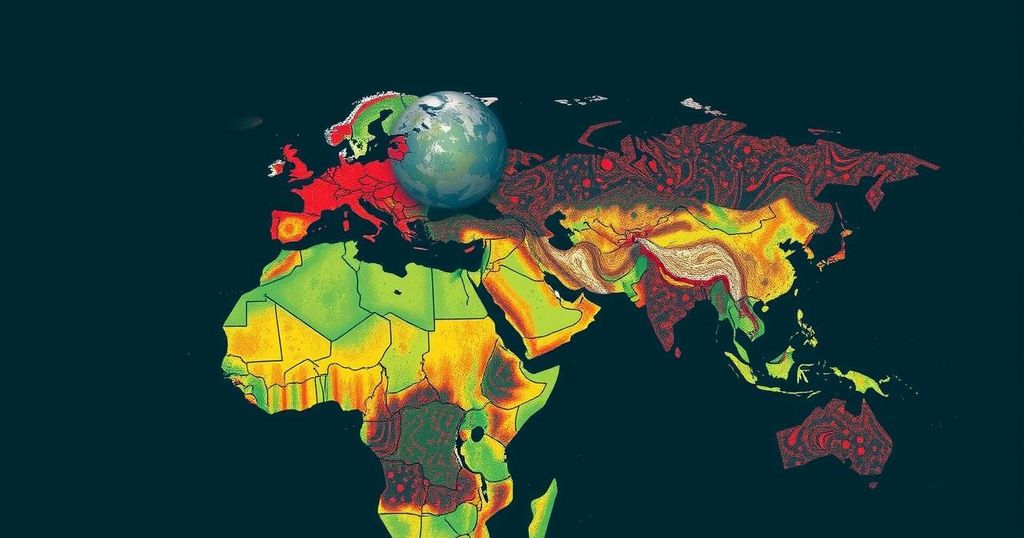The COP29 climate summit in Baku highlights ongoing tensions between developed and developing countries over climate finance commitments. While wealthy nations propose increasing funding to $300 billion, developing countries stress that this is inadequate compared to the $1 trillion needed annually to meet climate goals. Pakistan, facing a $348 billion finance gap, emphasizes the necessity of grants over loans to combat climate impacts, underscoring the urgency of bridging the significant gap between commitment and reality in climate finance.
The ongoing COP29 climate summit in Baku has extended beyond its initial deadline, revealing significant disparities in the negotiations surrounding climate finance. A primary point of contention is the New Collective Quantified Goal, where developed nations, historically responsible for most greenhouse gas emissions, have hesitated to propose substantive financial commitments. While wealthy nations have suggested raising climate finance to $300 billion, developing nations, such as Pakistan, argue this figure remains far from the estimated $1 trillion needed annually by 2030 to meet the Paris Agreement’s targets.
Pakistan is particularly facing a climate finance shortfall of $348 billion, highlighting the urgency of addressing this gap. The dissatisfaction among developing nations is palpable, with reports indicating that countries like Sierra Leone have considered withdrawing from negotiations due to feeling disadvantaged. The discourse has also included debates on which nations should bear the financial burden, with European countries urging high-emission economies like China and the Gulf states to contribute their share.
The internal U.S. political situation complicates matters, especially with the election of Donald Trump, who has expressed skepticism about climate change, potentially signaling a retreat from international financial obligations. Pakistani negotiator Arif Goheer has characterized the draft agreement as “disappointing,” emphasizing the need for grants instead of loans to avoid exacerbating debt issues. Pakistan has proactively initiated programs like the National Climate Finance Strategy and Recharge Pakistan to mitigate climate vulnerabilities, yet these initiatives are in need of significant financial support.
As negotiations remain entangled in bureaucratic hurdles, it is vital for the global community to recognize that climate finance transcends mere figures; it represents the lifeline for vulnerable nations striving to navigate a crisis they did not instigate. This awareness is essential for bridging the gap between commitment and action, a gap that currently seems insurmountable.
Climate finance refers to the financial resources allocated to help vulnerable nations cope with the effects of climate change, despite the historical lack of responsibility for the emission of greenhouse gases. The COP29 climate summit seeks to address the financial implications of global climate agreements, particularly regarding the commitments from developed to developing nations. The necessity for a robust financial framework has intensified in light of the pressing climate needs of countries like Pakistan, which highlight the urgent requirement for substantial funding to meet international climate targets effectively. The urgency is further underscored by the political dynamics within leading global economies, as leadership changes can significantly impact international climate commitments. Therefore, discussions at forums like COP29 are critical for both accountability and action towards funding solutions that prioritize vulnerable nations.
In conclusion, the ongoing COP29 summit reflects the stark divisions between developed and developing nations regarding climate finance commitments. The proposed financial contributions fall significantly short of what is required to address the escalating climate crisis, particularly for nations like Pakistan. As discussions progress, it is essential for the international community to transcend political posturing and foster a cooperative spirit that recognizes the moral responsibility owed to those countries that contribute least to climate change yet suffer the most from its effects. The collective action urgently needed must focus not only on funding but on sustainable solutions that empower vulnerable populations.
Original Source: asianews.network







